You may feel safe now, but AI is changing everything behind the scenes.
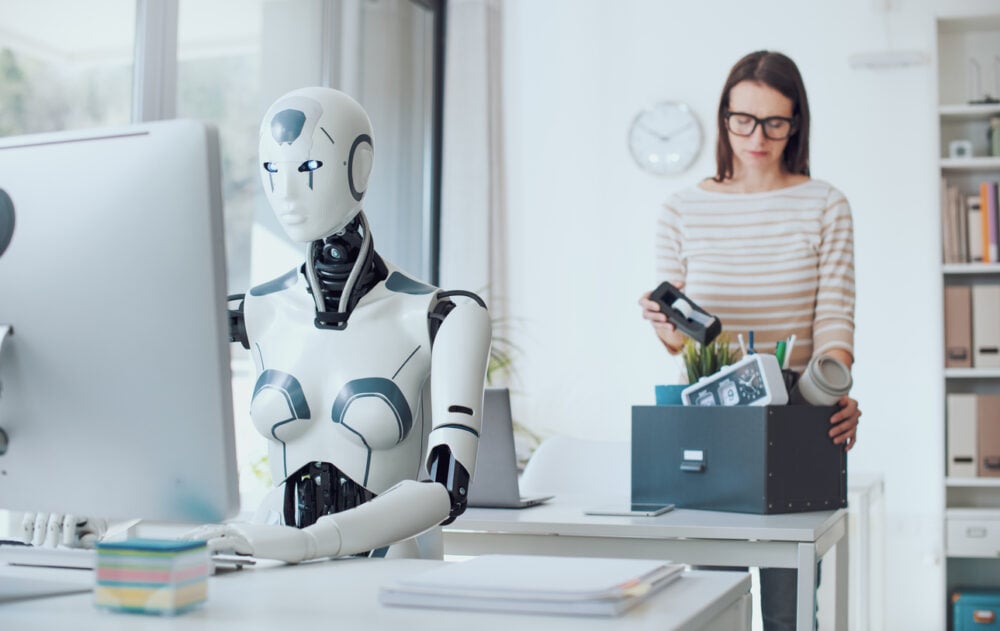
You might think AI is just some tech buzzword that doesn’t really touch your life—but it already does, in ways you probably don’t even realize. It’s not something creeping up on us slowly. It’s here, baked into daily routines, decisions, and opportunities without most people even noticing. Every scroll, every search, every recommendation feels normal, but behind the scenes, algorithms are shaping what you see, what you believe, and sometimes even what you choose. AI isn’t just about robots taking jobs or weird experiments in labs.
It’s quietly changing industries, economies, and even relationships in ways that are impossible to ignore once you see it. The scary thing? Most of the biggest changes are happening faster than laws, ethics, or common sense can keep up. If you’re still thinking AI is someone else’s problem, it’s time for a serious wake-up call—because it’s already rewriting the world you’re living in.
1. AI already decides what news you see—and what truths you miss.
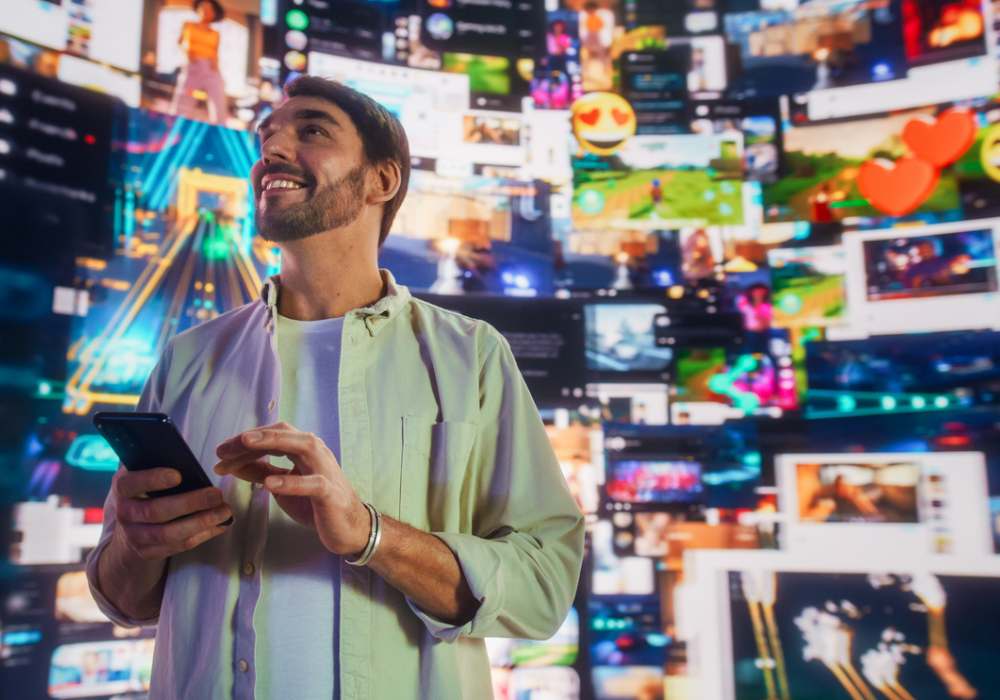
You might think you’re picking your news, but algorithms are actually picking it for you. Every time you open a news app, scroll through social media, or even search a headline, AI is behind the scenes curating what you’re allowed to see, says Dorcas Adisa in an article for Sprout Social. It’s not always about showing you the most important news—it’s about keeping you engaged, clicking, and scrolling.
The more you engage with a certain type of story, the more AI feeds you similar content, often pushing you deeper into your own bubble without you realizing it. You’re not just being informed—you’re being influenced. It’s scary how easy it is to be nudged into certain beliefs or opinions simply based on what an algorithm decides you’re most likely to interact with. Staying truly informed now takes active work. If you’re not questioning where your information is coming from, you’re already letting AI shape your reality without even knowing it.
2. AI is reshaping the job market faster than anyone is admitting.
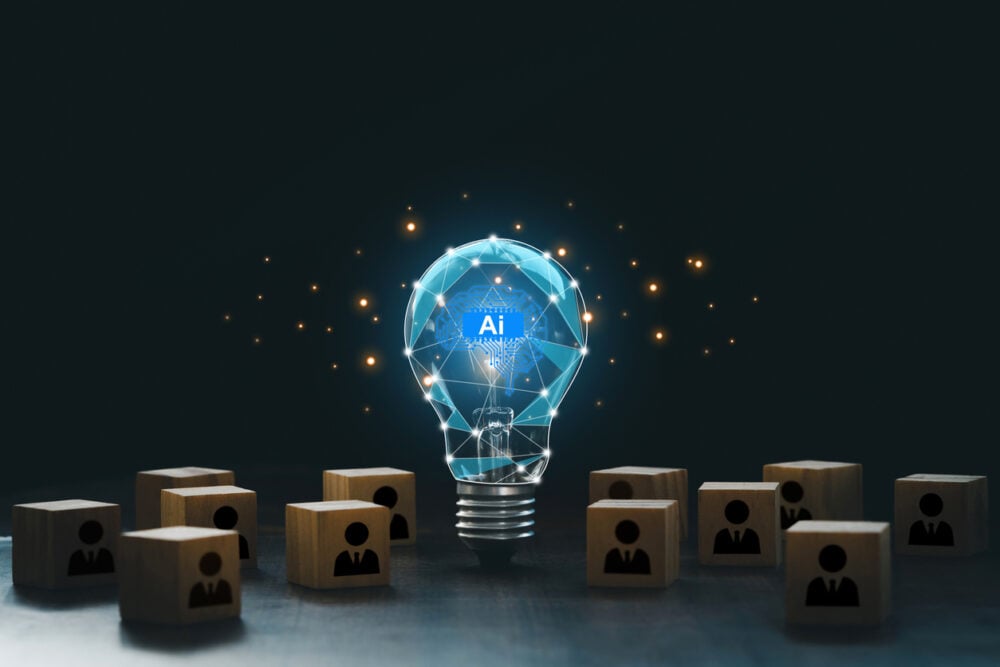
Automation isn’t some far-off future—it’s already happening. AI is steadily taking over jobs in fields you wouldn’t expect, like customer service, journalism, paralegal work, graphic design, and even entry-level programming, states Josh Howarth writing for Exploding Topics. It’s not just about robots on factory floors anymore. Smart systems are replacing tasks humans used to do, often quietly, without huge announcements or public debates. That doesn’t mean every job will vanish overnight, but it does mean the skills you needed yesterday might not be enough tomorrow.
Entire industries are being reshaped at a pace that makes it nearly impossible for workers to keep up unless they’re paying close attention. Retraining and adaptation are becoming survival skills, not luxuries. Pretending AI won’t affect your career is like standing on a sinking ship and insisting the water isn’t rising. The smart move now isn’t denial—it’s learning how to evolve alongside the machines before you get left behind.
3. AI is learning to mimic your writing, your voice, and even your face.

Deepfakes and AI-generated content aren’t just impressive party tricks—they’re redefining what’s real. AI can already create fake videos that look and sound exactly like real people, including you, warn experts in an article for Blackcloak. Your voice, your writing style, even your facial expressions can be cloned and manipulated with shocking accuracy. That’s terrifying for personal privacy, but it’s even worse for things like identity theft, fraud, and misinformation. We’re entering a world where seeing isn’t believing anymore.
That email, that voicemail, that video—it could be fake, and you might not even know it until it’s too late. Protecting your digital identity is becoming just as important as protecting your wallet. The problem is, laws and tech safeguards are lagging way behind the technology itself. If you think deepfake scams or impersonations won’t touch your life, think again. In the wrong hands, AI doesn’t just copy you—it uses your own likeness against you.
4. AI is quietly replacing human creativity—and it’s not slowing down.
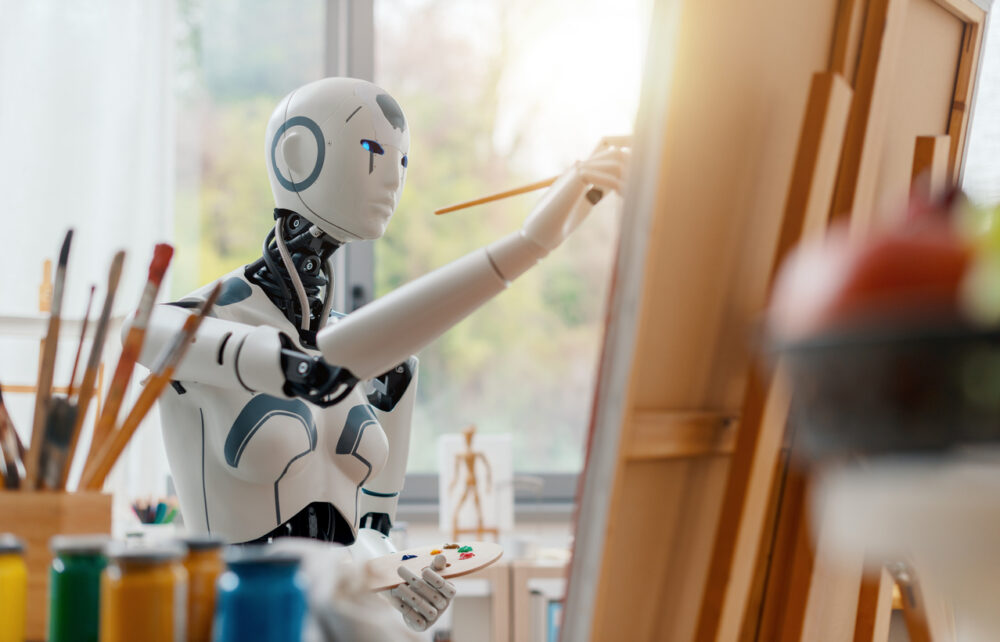
There’s this old belief that machines could never replace human creativity. Turns out, that’s not entirely true anymore. AI can now compose music, design artwork, write books, generate movie scripts, and even brainstorm business ideas. While it’s true that human touch still adds depth and meaning, AI is getting frighteningly good at producing “good enough” creative work—fast, cheap, and at scale. For artists, writers, musicians, and even marketers, this shift is a ticking time bomb. Creativity isn’t going away, but the space for it in the marketplace is changing dramatically. If companies can get passable songs, articles, or logos at a fraction of the cost, they’re going to do it.
The soul and originality might suffer, but most consumers won’t notice—or won’t care. Defending creativity now isn’t just about talent—it’s about proving the value of human nuance before the flood of AI-generated content drowns it out completely.
5. AI is tracking you in ways that make old-school spying look adorable.
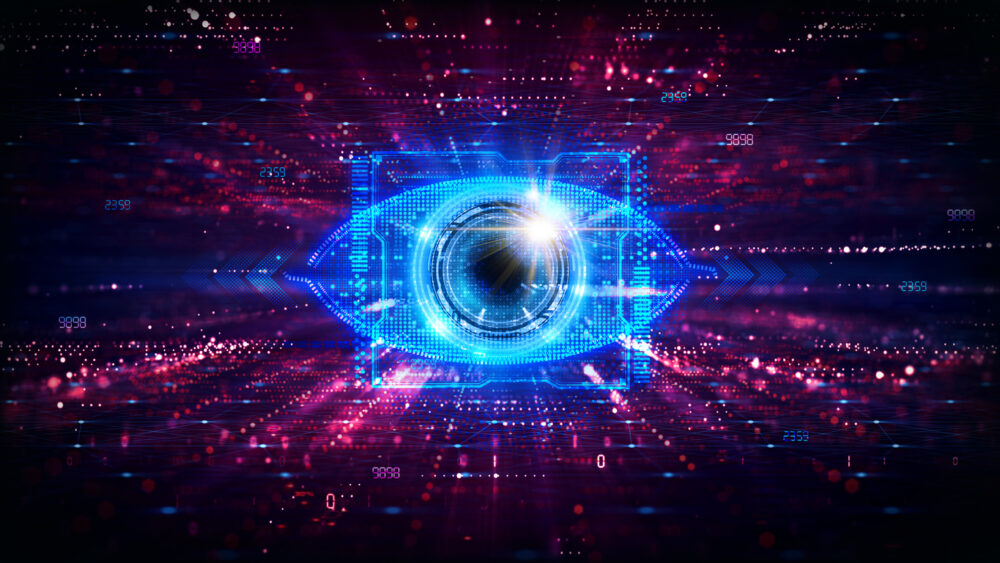
Every time you use a loyalty card, ask Alexa a question, click a “recommended for you” item, or even just drive past a smart billboard, AI is gathering data on you. It’s not just what you buy or where you go—it’s your habits, your preferences, your moods, and even your vulnerabilities. Companies aren’t just watching—they’re predicting what you’ll want, what you’ll fear, and what you’ll probably do next. It’s way beyond basic ads now; it’s full-on behavioral shaping without you even realizing it.
Privacy isn’t just under attack—it’s been quietly sold off, little by little, in exchange for convenience. By the time you notice how much AI knows about you, it already knows more than you’re comfortable with. Opting out isn’t easy either, because AI runs deep in the background of almost everything we touch now. Thinking you’re not being tracked is like thinking you’re invisible because you closed your eyes.
6. AI is fueling a new wave of misinformation that’s harder to spot.
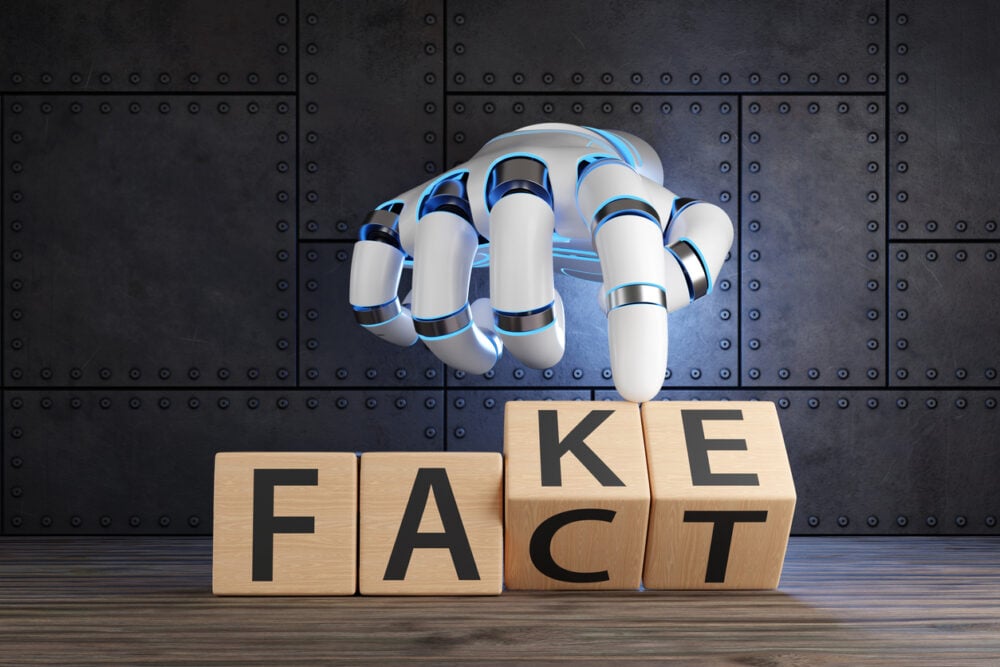
Fake news used to be easier to sniff out—bad spelling, weird headlines, shady websites. But now, AI can create convincing articles, generate fake videos, produce realistic photos, and even craft entire personalities online. It’s not amateurs spreading misinformation anymore—it’s highly sophisticated networks powered by AI doing it at a scale humans could never achieve. Bots aren’t just posting random junk; they’re tailoring misinformation to your fears, your politics, your beliefs. It’s targeted, emotional, and designed to make you act without thinking.
Even smart, skeptical people are falling for AI-created lies because it’s that good. Fighting misinformation now isn’t just about fact-checking—it’s about staying aware that you’re a target. In this new era, anyone can be manipulated if they’re not paying close attention. The scariest part? A lot of people have no idea they’re being played until it’s already too late.
7. AI is already helping to write laws—and sometimes it’s getting it wrong.
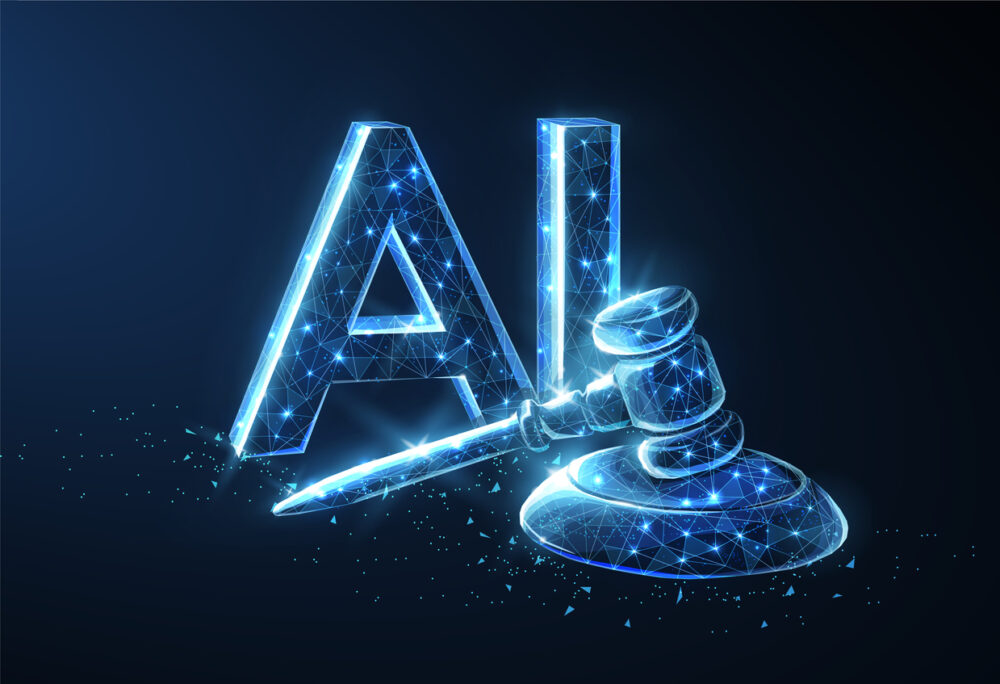
You might assume laws are written by careful, thoughtful humans poring over the details. But in some places, AI is being used to draft legislation, analyze legal documents, and predict court outcomes. On the surface, that sounds efficient. But the problem is, AI doesn’t understand context, nuance, or the real-world consequences of its suggestions the way humans do. Mistakes slip in. Biases get baked into the system. Bad recommendations get passed along because they look good on paper.
When lawmakers rely too heavily on algorithms, we risk creating laws that are technically “smart” but practically harmful. It’s automation in one of the places where human judgment is most important—and if it goes unchecked, the ripple effects could hit everything from civil rights to healthcare policy. The more we outsource lawmaking to AI, the less human our societies might start to feel. That’s not a future anyone should sleepwalk into.
8. AI is making it easier for cybercriminals to level up their attacks.

Hacking used to require a lot of skill and time. Now, thanks to AI, even low-level cybercriminals can launch incredibly sophisticated attacks with just a few clicks. AI can help attackers guess passwords faster, craft fake emails that are almost impossible to spot, and even create malware that adapts in real-time. It’s like giving every petty thief in the world a high-powered laser cutter instead of a crowbar. The scale and speed of cybercrime are exploding because AI levels the playing field for bad actors. If you think you’re too small or unimportant to be targeted, think again.
AI doesn’t care who you are—if your data is valuable or your identity can be exploited, you’re fair game. Protecting yourself now means updating passwords, using two-factor authentication, staying suspicious—and understanding that the threats are smarter, faster, and harder to see coming than ever before.
9. AI is creeping into healthcare decisions—and not always for the better.
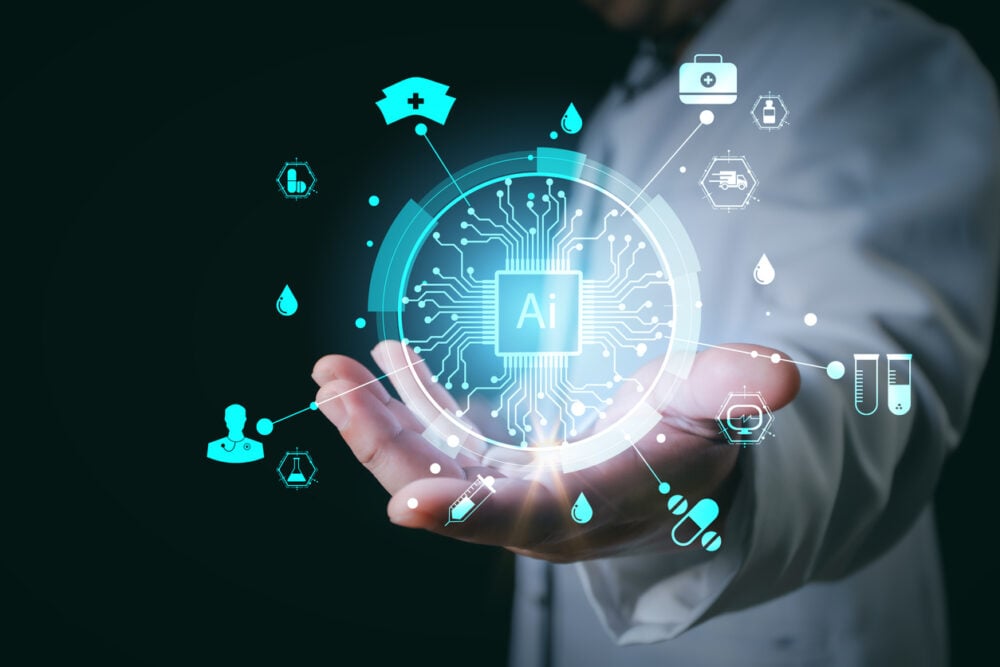
You might think your doctor is calling all the shots when it comes to your health, but AI is already influencing a lot of what happens behind the scenes. Hospitals and insurance companies are using algorithms to help diagnose diseases, predict patient outcomes, and even decide which treatments get approved. Sounds smart, right? Sometimes it is. But AI can also miss important details, misinterpret symptoms, or reinforce biases hidden in old medical data. In some cases, patients are getting denied treatments or misdiagnosed because an algorithm flagged something incorrectly.
The scary part? You might never even know AI played a role in those decisions. Health care is supposed to be personal, human, and compassionate—not driven by code written by people who never met you. As AI’s role in medicine grows, trusting the system gets a lot more complicated. It’s not enough to trust your doctor—you have to trust the machine behind them, too.
10. AI is changing what your kids learn—and who controls that knowledge.
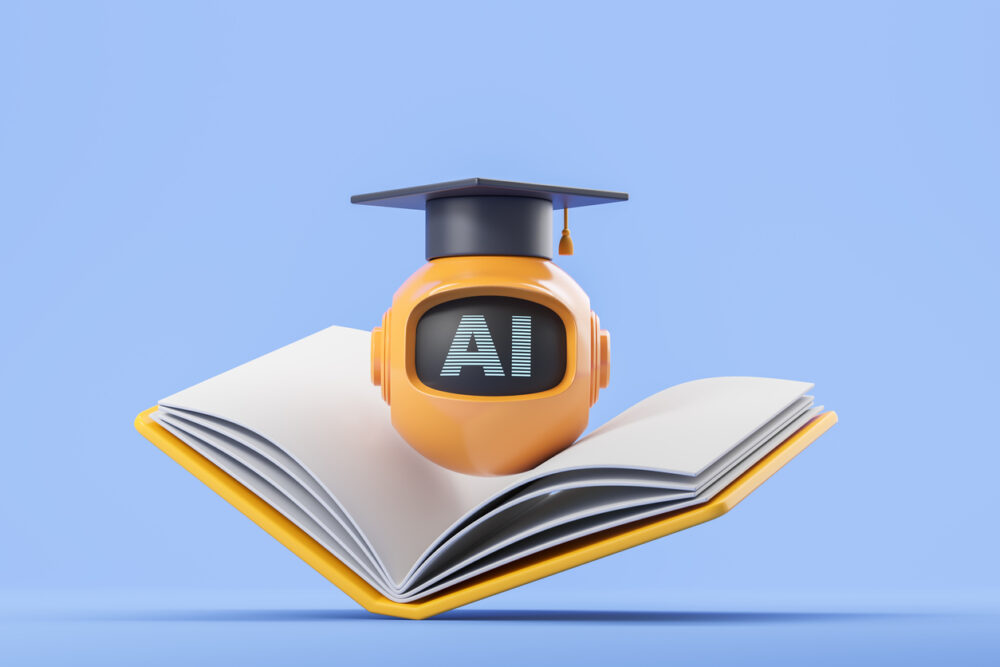
Education isn’t immune from AI’s reach either. Schools are starting to use AI to grade assignments, recommend learning paths, and even monitor student behavior online. On paper, it sounds efficient. In reality, it opens a huge can of worms about bias, privacy, and who gets to decide what knowledge matters. If AI determines what books your kids read, how they’re assessed, and even who gets flagged as “high risk” for falling behind, it’s shaping more than just grades—it’s shaping lives. Worse, most parents have no idea how much of their child’s education is already being filtered through these invisible systems.
Technology isn’t bad, but giving AI too much control over learning risks creating a generation that’s optimized for standardized results, not critical thinking. Education should be about exploration and growth—not just ticking the right algorithmic boxes. Once AI starts deciding what “success” looks like, we all lose something important.
11. AI is deepening inequality in ways you don’t see until it’s too late.
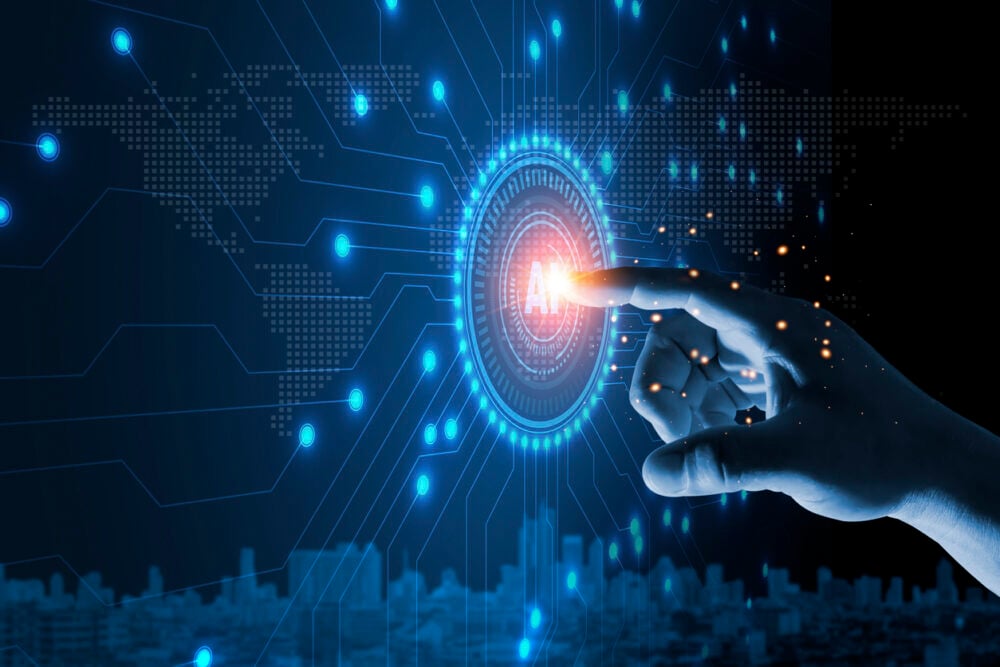
It’s easy to believe that technology levels the playing field, but AI is often doing the opposite. Wealthy companies and countries have access to better AI tools, faster innovation, and more control over the data that feeds their systems. Meanwhile, underfunded schools, rural hospitals, and marginalized communities get left behind—or worse, misjudged by flawed AI models.
The rich get richer, the powerful get smarter, and the gaps between people grow wider. It’s not just economic inequality—it’s opportunity inequality, access inequality, and even justice inequality. If AI decides who gets a loan, a job interview, or even access to medical care, and it’s built on biased data, then discrimination gets faster, slicker, and harder to fight. This isn’t science fiction—it’s happening right now. If we don’t demand transparency and fairness, AI won’t just reflect existing inequalities—it will supercharge them.
12. AI is quietly shifting what it means to be human—and no one’s ready.
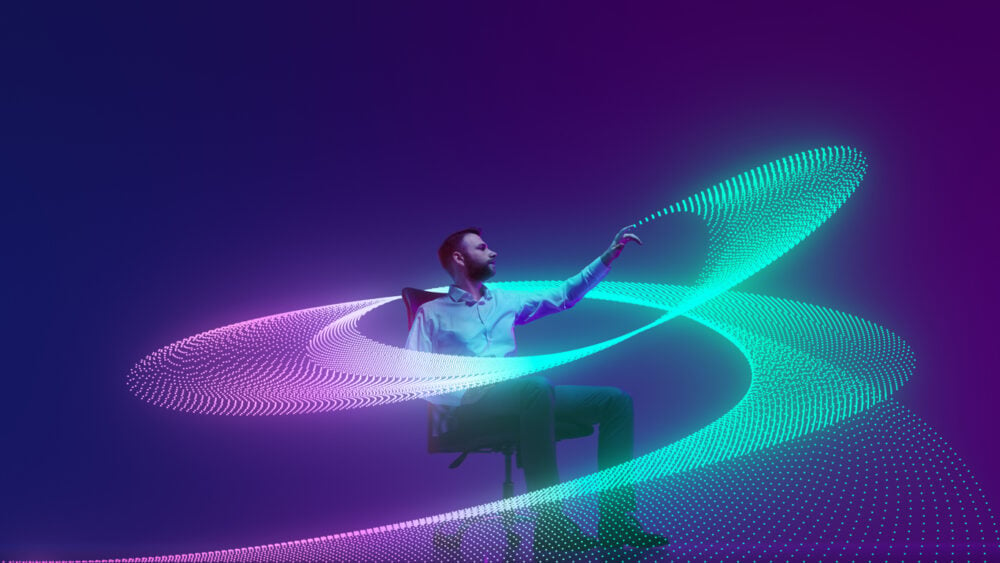
At the end of the day, the biggest change AI is bringing isn’t about gadgets, apps, or even jobs. It’s about identity. When machines can think, create, and interact in ways that used to define what made us uniquely human, it forces a deep, uncomfortable question: what’s left that’s ours? Creativity, decision-making, empathy—these were once the sacred domains of people. Now, AI can mimic a lot of that shockingly well. As we lean harder into technology, the lines between human and machine are getting blurrier by the day.
The danger isn’t just that AI might replace us—it’s that we might start forgetting what it means to be fully, imperfectly human in the first place. Progress is incredible, but without reflection, we risk waking up in a world that feels colder, faster, and emptier. If that’s not a reason to start paying attention now, I don’t know what is.
